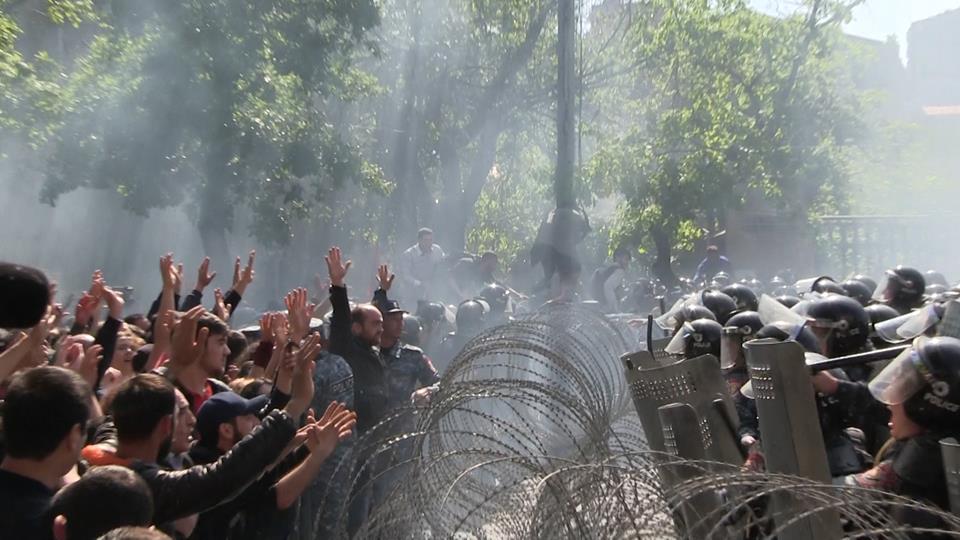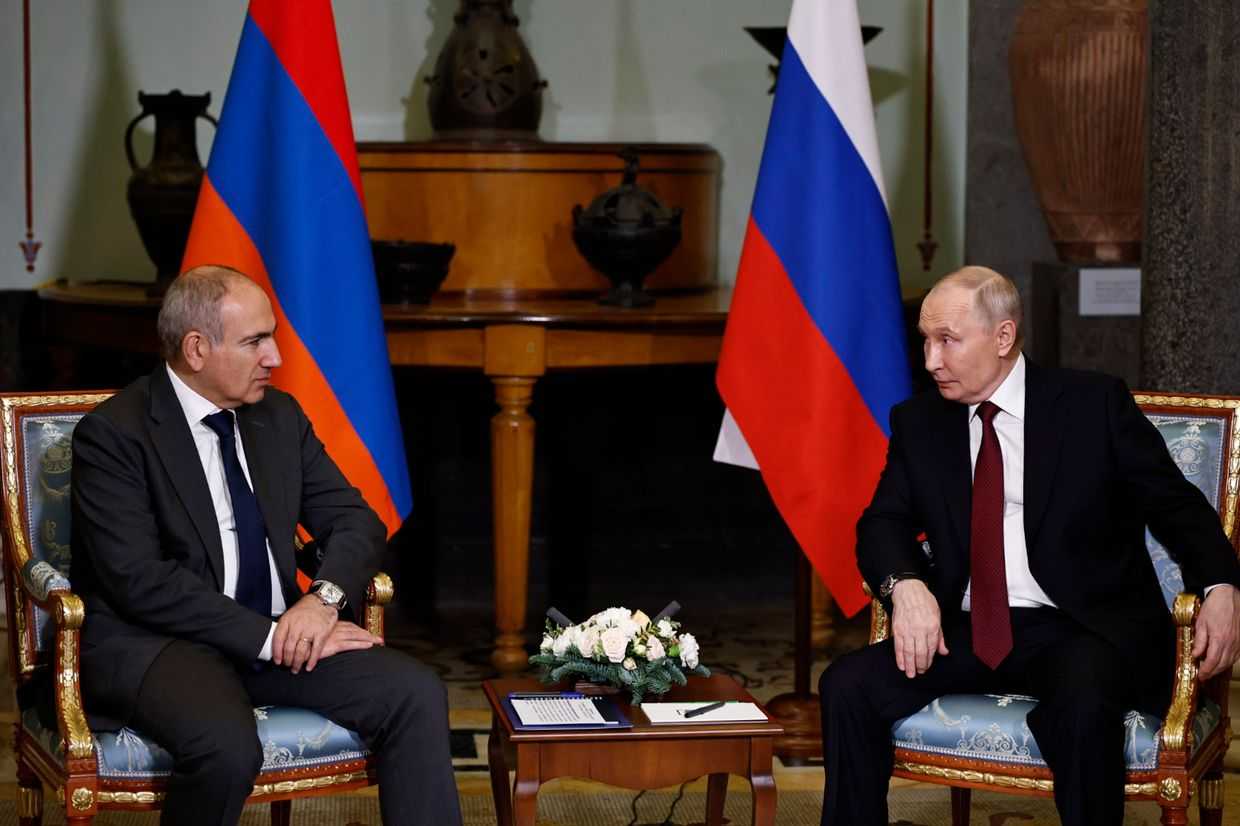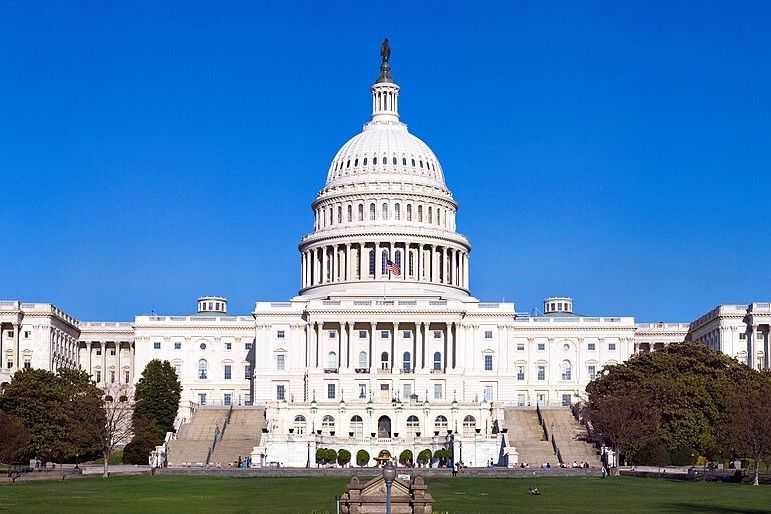As thousands rally for a ‘Velvet Revolution’ — Serzh Sargsyan is not yet relinquishing his grasp on power



As protests in Yerevan continue unabated, Serzh Sargsyan’s grip on power seems as tight now as ever before. Whatever their outcome, one thing seems clear, discontent against his rule has become more pronounced than ever before.
A new protest anthem has been echoing across Yerevan’s streets in recent days:
‘…I have been defeated many times, And saw the snigger of Evil, But my soul knows no surrender, I am taking a step…’
The author of the song is the charismatic Nikol Pashinyan, who has emerged as the head of the ‘take a step, reject Serzh’ movement. The movement is directed against Armenia’s ruling Republican party leader, Serzh Sargsyan, who has manoeuvred himself back into power as prime minister after serving two terms as president.
Pashinyan has been taking his own steps to bring down Armenia’s new prime minister for two weeks now since Sargsyan stood down as president and the country’s new parliamentary system of government began to take effect. Taking a break from his parliamentary duties, the former political prisoner has been walking from town to town, reaching out to people, and staying in tents overnight. He finally returned to the Armenian capital on 13 April, for a march that some even compared to Gandhi’s Salt March or Moses’s Exodus.

Since then, Nikol Pashinyan has been standing on a stage in Yerevan’s vast Republic Square daily. Sunburnt, wearing sports clothes, and carrying a backpack, his bruises from a minor clash with the police have only added to the energy of the largest protest in Armenia’s recent history.
Pashinyan and most of his team lean right and are somewhat nationalistic politically, although he tends to avoid speaking much about it, first dealing with the overthrow of the corrupt regime. Accompanied in public gatherings by his wife, journalist Anna Hakobyan, Pashinyan appears the noble Armenian, a good husband, and a good father of four. Having been criticised for betraying the streets and entering the corrupt parliament in 2016, Pashinyan now has a chance to reclaim his image as a real activist, and he does not seem to tire of the constant rallies and sit-ins.
The emerging leader doesn’t seem discouraged by the failure of his original plan to surround Armenia’s parliament, the National Assembly. They did not manage to prevent the vote on Serzh Sargsyan’s transfer from president to prime minister on 17 April, as police blocked the way with barbed wire and riot police a dozen lines deep.
‘Many people approached me with plans to untangle the wire. But I thought about it and concluded that we must strengthen that razor wire even more. Serzh Sargsyan has to see Armenia from behind that wire only’, Pashinyan declared, receiving chants and applause from around 20,000 protesters assembled on the main square.
Pashinyan called for people to remain calm and cool-headed, and committed to the principles of nonviolent disobedience. He has asked people to continue occupying streets and squares, ministries, and schools and go on strikes to paralyse the country.
‘We denounce violence not only as an action but also as a counter-action. Everything has changed, Serzh Sargsyan has no people to govern, the Armenian people don’t have a Prime Minister named Serzh Sargsyan. I hereby declare the start of a non-violent Velvet Revolution in Armenia.’
[Read on OC Media: More detentions as Armenian protests enter seventh day]
This declared ‘Velvet Revolution’ is not just another colour revolution, Pashinyan has proudly declared it ‘the only protest in the post-Soviet and post-socialist block that is void of any foreign state’s support’. Instead, he relies on the youth for their vigour, and on the diaspora for their financial help and emotional encouragement.
‘We have packed the biggest square in Yerevan, which last saw such an abundance of people at the concert of the System of a Down rock band’ Pashinyan said, calling on System of a Down frontman Serj Tankian to join the protests. ‘Serj, see, the same people are standing now in this square, you have to come to Yerevan and stand by the people․’
‘Respected Mr Charles Aznavour, you’ve told international media on multiple occasions that Armenia is ruled by mafia rules. We’re putting an end to the mafia and your presence here is important. We have to put an end to the mafia without shedding any blood’, Pashinyan asked in a dramatic plea for support.
‘Don’t stir the sleeping volcano’
As Pashinyan was addressing the biggest crowd the experienced public speaker had ever seen on 17 April, Serzh Sargsyan finalised his transfer to the Prime Minister’s post in a parliamentary vote behind razor wire. In his speech, Sargsyan alluded to the protests briefly, urging people in a somewhat patronising, fatherly tone ‘not to stir the sleeping volcano’.
‘I am sure at least 60%, or a little more, are dissatisfied with their lives. But to be dissatisfied doesn’t mean to revolt. In many families, children may be dissatisfied with their parents, that might not necessarily signify a conflict’, he said.
During the parliamentary sitting that made Sargsyan prime minister, he also addressed the biggest criticism against him — unprecedented rates of migration, 350,000 people since 2008. He used nationalistic rhetoric to evade the question.
‘Openly talking about the problem of migration is not appropriate. Obviously, our dialogue is heard not only by Armenians but also those who are trying to find problems with us’, he said.
By ‘those’ the now prime minister means those in neighbouring Azerbaijan. Nationalistic propaganda in Armenian schools and on TV is used to block any discussion of social and human rights issues in the country, not to mention throwing Armenians and Azerbaijanis on both sides of the Nagorno-Karabakh conflict further away from peace and reconciliation. It has also proved effective in labelling any peace initiatives as ‘treachery’ and delegitimising human rights activists as ‘Western-funded puppets’.
However, the Republican Party’s propaganda playing on Armenians’ nationalist tendencies has not been entirely successful. Serzh Sargsyan, also Head of Armenian Chess Federation, began the country’s move to parliamentarianism with a 2015 constitutional referendum, in which he claimed to be parting with a one-person ruler system to create a parliamentary system. This may have pleased the European Union, who supported the move away from a presidential system, but the ‘Reject Serzh’ movement say the new prime minister will effectively be endowed with even more power than the president had been before. For the Armenian nation, the constitutional changes are seen by most as an age-old tactic used by many an authoritarian to stay in power.
Sargsyan’s two previous elections were heavily contested by the public too. Both times, a majority seems to have seen through the elections, won through voter intimidation, bribery, and other forms of electoral fraud. Big protests against the results in 2008 culminated in round-the-clock sit-ins, which only ended after the authorities moved in to crush the protests, including the use of live fire. At least 10 people were tragically killed. A decade has passed and still no one was held accountable for the disproportional use of force. The case is currently pending in the European Court of Human Rights. This, as well as another ultimately unsuccessful protest movement against rigged elections in 2003, have deepened the apathy of the people.
According to demonstrators, Sargsyan’s continuous rule threatens to further drain the country’s resources, and if unchecked, will transform the country into an authoritarian state. The essence of this pessimistic prediction is not only a general distrust, but the new laws adopted within last six months restricting government transparency and centralising power into the hands of the prime minister. One of the most notable changes to the law will mean that government hearings will now be held behind closed doors, and ministers will be prevented from speaking with the media about decisions the executive body makes. Local media organisations have strongly condemned the changes.
However charismatic Pashinyan may be, he is not the reason thousands are now taking to the streets. Growing levels of poverty (according to official data from 2015, 30% of Armenia’s population is poor), social injustice, and an absence of a free judiciary are. It is hard to predict whether this latest attempt to overthrow Sargsyan’s regime will succeed. But one thing is certain — Serzh Sargsyan’s victory has now been disturbed for a third time running.



















